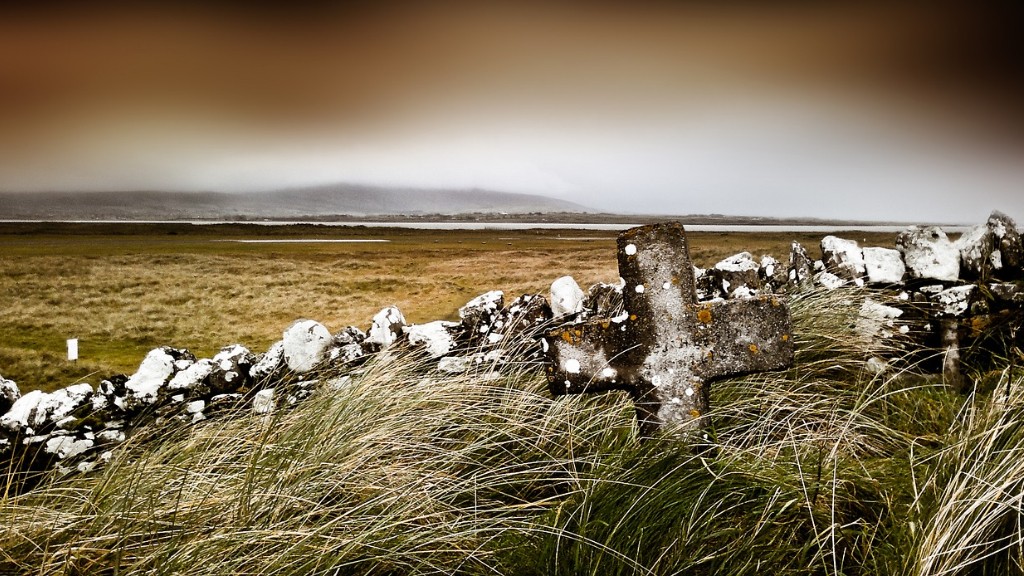Status of Vaccination in Ireland
Ireland has been dealing with the onset of the Coronavirus pandemic since early 2020 and has struggled to keep case counts low throughout the pandemic. Statistics from WHO published on June 1st, 2021 indicate that the country has reported more than 228,000 cases of COVID-19, with an overall death toll of 4,745. In response, the government has implemented a series of preventative measures, including a restriction on international arrivals.
However, recent developments have brought some relief to both locals and tourists alike. Following the success of Ireland’s vaccination program, the government recently announced that it would start to ease restrictions for international travelers who had been fully vaccinated against COVID-19.
Can Tourists Travel to Ireland If They Are Fully Vaccinated?
The answer is yes. Fully-vaccinated international travelers are now able to enter Ireland, provided that they meet certain criteria. According to the government’s official statement, tourists who are fully vaccinated with an approved vaccine must show proof of a negative PCR test taken no more than 72 hours before their flight and must provide evidence of their full vaccination status.
In addition, travelers will need to fill out a Passenger Locator Form upon arrival and will also be subject to a 14-day quarantine period. Despite this, the relaxation of restrictions will open up a world of possibility for international travelers who wish to visit the Emerald Isle.
Types of Approved Vaccines
In order to ensure that only those who have been successfully protected from the deadly virus enter the country, the government has approved a select number of vaccines for the purpose of international travel. These vaccines include the Pfizer-BioNTech vaccine, Moderna, and AstraZeneca.
Due to the increasing number of vaccine-resistant variants that are being recorded around the world, officials have encouraged all international travelers to ensure that their vaccine is up-to-date. An update to the government’s statement has also specificed that all children aged twelve and above must be vaccinated in order to qualify for travel.
Safety Protocols for International Travelers
Once in Ireland, international travelers are expected to respect and adhere to the country’s safety guidelines. This includes wearing masks in all indoor and outdoor public areas such as restaurants, retail stores, and markets, and maintaining a safe physical distance from other travelers. Tourists should also be aware that if they fail to comply with the country’s safety protocols, they may be subjected to fines.
Private accommodation providers must also adhere to the government’s new safety rules, which include regular cleaning and sanitation of facilities and the submission of daily reports detailing the number of people who are staying at the location.
Insurance Requirements Before Travel
In addition to all the above-mentioned measures, travelers to Ireland must obtain travel insurance before their trip. This form of insurance should cover any costs related to medical treatments, as well as any losses in the event of a travel disruption caused by the Coronavirus.
Furthermore, those who wish to stay in Ireland for longer than three months must be in a position to prove that they are financially capable of covering their living costs during the entirety of the duration of their visit.
Multiple Entry Visas
The Irish government, in order to reduce the risk of international travel, has emphasized the importance of multiple entry visas. This type of visa offers travelers the opportunity to enter and exit the country multiple times without having to apply for a new visa each time. The government has strongly recommended that those who need to enter the country multiple times apply for this type of visa.
Multiple entry visas are only available to those with a satisfactory immigration history, and therefore it is important for travelers to make sure that their past visa applications have been approved before applying for the current one.
Traveling Tips
When it comes to traveling to Ireland, it’s important to make sure that you are properly prepared. It’s recommended that travelers research the restrictions in the country before they travel and plan their trip accordingly. Many areas and attractions are open and therefore travelers should be sure to check if their intended destination is available for them to visit.
In addition, it is strongly advised that travelers consult their home country’s government website for the latest advice on international travel. This is important, as each country has its own restrictions and requirements for entering and exiting the destination.
Finally, it is strongly recommended that travelers contact their airline prior to their departure to ensure that their flight is still scheduled and that their seat is still available.
Passport and Visa Requirements
In order to enter Ireland, travelers must hold a valid passport and, depending on their nationality, a visa. Visas can be obtained by applying directly to the Irish Department of Immigration, or through a visa processing agency.
It is important to make sure that your passport is still valid for at least six months after you enter Ireland, and that you have enough space for any necessary stamps. In addition, many countries may require that travelers hold a visa even if they are just transiting through the country, so travelers should ensure that they have the correct visas before entering Ireland.
Staying Connected
When traveling to Ireland, it is important to make sure that you stay connected. This can be achieved by obtaining a local sim card, which can be purchased in most supermarkets and other shops. It is best to research and compare different mobile plans before purchasing, as some may offer more features at a lower cost.
It is also important to note that Ireland operates on the 230 Volt power system, meaning that foreign travelers may need to purchase a travel adapter when packing for their trip.
Public Transport
Public transportation is widely available in Ireland, with both buses and rail services running to and from major cities. To make the most of the country’s transport system, travelers can purchase either an all-inclusive ticket or an individual ticket depending on their needs.
In addition, travelers may also wish to consider renting a car. This is beneficial for those who wish to explore Ireland and plan to be on the move for a long period of time.
Weather in Ireland
The climate in Ireland is generally mild but can vary throughout the year. It is important to note that the temperature can drop during the winter, so travelers should pack extra layers and prepare for the cold.
The summer months in Ireland are warm and sunny, making them ideal for outdoor activities. Visitors should note, however, that rain is always a possibility and should come prepared with appropriate clothing and an umbrella.
Tourist Attractions
Ireland has a multitude of tourist attractions, and travelers planning a trip to the country should use their time there to explore and enjoy as many of them as possible. From its long-stretching beaches and its lush green hills, to castles and cathedrals, Ireland has something for everyone. A few popular spots include the Cliffs of Moher, the Giant’s Causeway, Cork, Dublin, and Belfast.
Popular activities include fishing, golf, walking tours, and unique cultural experiences. No matter what type of adventure you’re looking for, Ireland has something for everyone.





